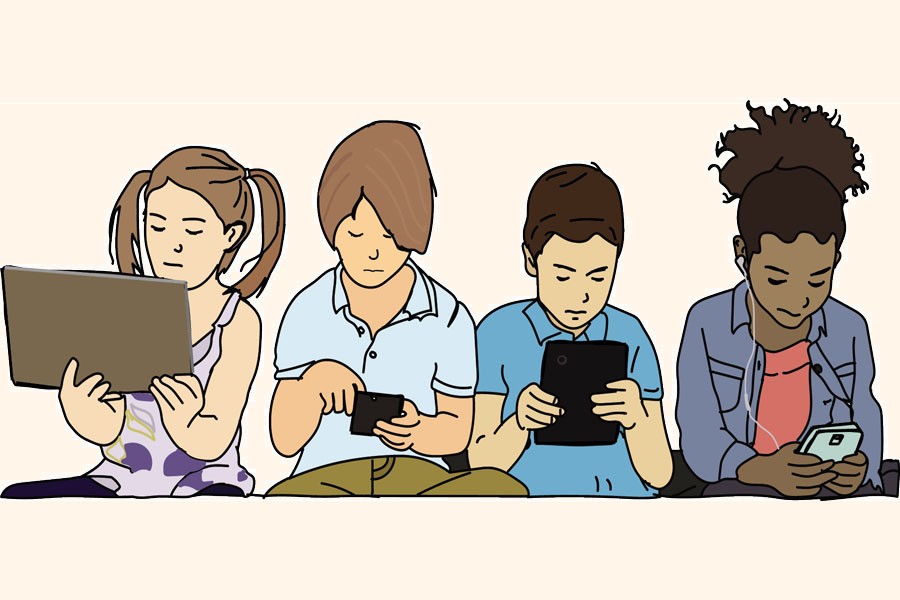
Published :
Updated :

Like the 'Unreal City' in TS Elitot's The Wasteland, Dhaka soaks the searing heat of a fiercely burning sun and stands abstract and impervious as if it is a piece cut out of the netherworld. In Eliot's masterpiece, London was under the brown fog of a winter dawn. But the difference in time of the day hardly matters. Even the long time gap between Eliot's London and today's Dhaka is no bar to appreciate the unending hectic flow of a crowd on the London Bridge and a comparable one on escalators of any of the busy metro stations. In the poem, the Thames sweats oil and tar, so does the Buriganga burnt out diesel, tar, chemicals and what not!
All this sets the stage for people isolated, dehumanised, insensitive, robotic lacking the ability to introspect and appreciate the value of aestheticism. Always in a rat race, they are on the lookout of how to elbow others out of the competition even in small matters such as standing in the queue for a ticket or getting out of the station. It happens everywhere from making one's way on a crowded footbridge to footpath to lifts in a high-rise building or even hospital.
Some oldies grumble that quite healthy young men jostle to get in metro station's lift meant exclusively for the disabled, old and infirm people. At least it is the senior citizens who were supposed to take advantage of the lifts and seats in the trains. In rare cases do today's youths leave the seats for standing seniors. Instead, they continue to browse their smartphone sitting snugly. Again some seniors would complain that this is the result of a lack of family education, tradition and culture.
Let alone familial value system, tradition and culture, what about acquiring the minimum cosmopolitan sense and behaviour that at least help one to be courteous and minimally sophisticated in conducting oneself in the outdoor situations? But these are symptoms not the disease proper. People are either dissatisfied or angry and some are seething in rage within. They just need the flimsiest pretext to burst out. At times they would make a mistake only to shift the blame on others and thus get involved in heated exchange of words or even a scuffle. One is not unlikely to come across such a scene of physical violence between two rickshaw-pullers where a common self assertion is, "Do you know who I am?"
The mentality runs through the blood stream of the majority of the Bangalee people. Self importance is another form of narcissism with a streak of bullying mentality. In the political domain of today's Bangladesh, however, bullying has its nuisance value for political parties and the youths studying in colleges and universities are practising this in order to draw the attention of men and women who matter in the power structure.
So it is futile to expect political elitism or a cultural awakening in an arid social canvas where distributive justice in terms of wealth has become a casualty. The meritorious and the more qualified have to leave place to the mediocre who have demonstrated ability to be either yes-men or produce results as the doctor orders by means foul or fair usually through exercise of muscle or money power or other influences.
The land may still grow the juiciest, sweetest and supplest fruits like mangoes, black berries, litchis, pine apples and a host of other choice fruits in summer but people's mental space is increasingly shrinking, turning infertile, hollow and mechanised. Human relations have in general taken a beating at the hands of artificial and virtual communication where head may be present but the heart is totally absent. Thanks to the addiction to social sites, people, the young generation in particular, hardly ever take a deep breath to immerse in the depth of their soul to explore who they are and why they are here.
Existence of life on this planet is no freak. It has a purpose to serve and without divining the special mission one is gifted to embark on, the day-to-day tasks are meaningless. TS Eliot's hollow people are increasing at a faster rate than ever before. The aridity of mind and soul is more dangerous than the aridity of land. Land will become totally arid only after the cry of the soul gets unresponded to in a soulless world. It is this unresponsive mind and soul at personal, familial and social levels that have posed the greatest challenge to humanity. Skeletons of broken relations are strewn all over and it is not easy to overcome the dangerous legacy. Reimagining a society simpler but erudite, not filthily affluent but solvent enough where disparities and discriminations are nearly non-existent is a way out for preservation of the humanity and the mother Earth.


 For all latest news, follow The Financial Express Google News channel.
For all latest news, follow The Financial Express Google News channel.